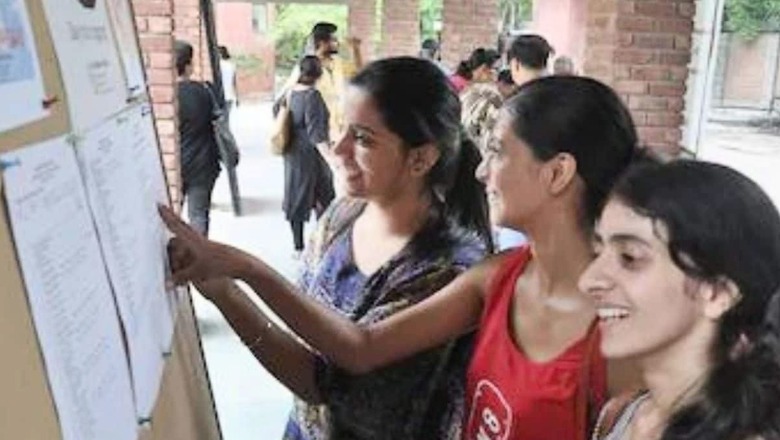
views
The University Grants Commission (UGC) has formulated a set of draft guidelines to establish PhD Excellence Citation, an initiative to recognise “outstanding” research work in Indian universities where institutions will identify and felicitate winners from different streams annually.
The initiative is in line with the new National Education Policy (NEP), 2020, which envisages the creation and exploration of new knowledge through research.
According to the draft guidelines, UGC will award ten PhD Excellence Citations (two from each discipline). The idea is to create a quality research ecosystem as well as identify high-quality PhD work among young research scholars and recognise them.
The decision was taken during the commission’s meeting on October 3. The guidelines are yet to be put in the public domain for obtaining feedback.
“This initiative is set to recognise outstanding doctoral research across a range of disciplines. In alignment with the NEP, the PhD Excellence Citation is an effort to identify and commend exemplary research work in Indian universities,” said UGC chairperson Prof M Jagadesh Kumar.
Institutions of higher learning play a crucial role in the generation of new knowledge and innovation and the generation of new knowledge, in turn, is largely dependent on the quality of doctoral degrees, he said.
Against this background, a study conducted by the UGC on the PhDs awarded from 2011 to 2018 provided important insights to frame the guidelines. The study indicates a growing trend in the number of students opting to pursue research degrees.
The study found that total PhD admissions doubled from 77,798 in 2010-11 to 161,412 in 2017-18. This data shows that the overall PhD admissions increased at the rate of 10% annually during this period.
At 30%, the highest number of PhDs awarded during this period were in the science stream. This is followed by engineering and technology (26%), social sciences (12%), Indian languages (6%), management (6%), agricultural sciences, medical sciences (5%), education (5%), commerce (3%), and foreign languages (3%).
Streams covered, eligibility
The initiative will cover theses from Sciences (Sciences, Medical Sciences), Engineering and Technology, Social Sciences (including Education and Humanities), Indian Languages, and Commerce and Management.
Research scholars who have successfully defended their theses in Indian universities, such as state universities, central universities, private universities, and deemed to be universities, are eligible to apply.
Only those universities that have been recognised under 2(f) of the UGC Act as well as accredited by the National Assessment and Accreditation Council (NAAC) will be eligible to participate in this initiative, as per the regulations.
“Every university may nominate up to five theses in a year, one from each of the five disciplines, from the PhD degrees awarded through a convocation from January 1 to December 31 of the previous year,” the draft rules stated.
The winners will be felicitated by the UGC every year on September 5, commemorating Teacher’s Day.
Selection process
The commission proposes a two-level selection process —- a screening committee at the university level; and a selection committee at the UGC level.
Each university will constitute its own screening committee to shortlist candidates for the Excellence Citation from the given five streams.
The selection of the UGC will have five panels for each of the streams. Each of these panels will select two candidates from their respective streams.




















Comments
0 comment